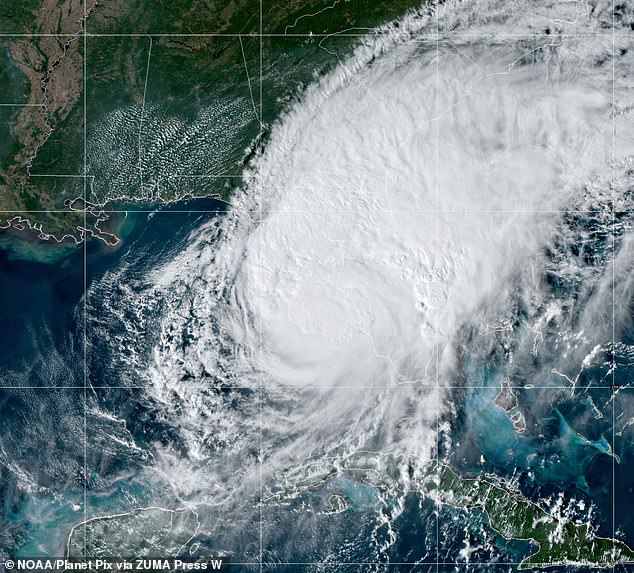Hurricane Milton continues to ravage Florida, leaving a trail of death and destruction in its wake as it moves toward the Atlantic.
Entire streets have been flooded, homes destroyed and millions of people have been left without power as search and rescue teams battle the elements to save victims.
While it looks like Milton will return to the sea, it will still bring hurricane-force winds and once-in-a-millennium rains on land.
Casualties were first reported even before Milton made landfall overnight, with 120 mph winds and tornadoes as its eye slammed into Siesta Key.
Below, weather modeling company Ventusky shows Hurricane Milton’s devastating path through Florida.
Hurricane Milton hit Florida as a Category 3 storm, bringing high winds, heavy rain and tornadoes to much of the Gulf Coast, including communities already hit by deadly Hurricane Helene.
Early this morning, Milton was moving off Florida’s east coast as a Category 1 storm, with maximum sustained winds of 85 mph, the National Hurricane Center said.
Milton was expected to continue moving away from the peninsula and toward the northern Bahamas.
Tornadoes swept across the state before the storm made landfall. The Spanish Lakes Country Club, near Fort Pierce on Florida’s Atlantic coast, was especially hard hit, with its homes destroyed.
Some residents died, St. Lucie County Sheriff Keith Pearson told WPBF News, although he did not say how many.
At least five people are hospitalized in Palm Beach due to tornadoes on land.
The hurricane made landfall near Siesta Key, a barrier island of white sand beaches south of the Tampa Bay area that is home to more than 3.3 million people.
Millions of people were ordered to evacuate. President Joe Biden, who postponed a trip abroad so he could remain at the White House to monitor Milton, said it “could be one of the worst storms to hit Florida in 100 years.”
Satellite view of Hurricane Milton moving toward the west coast of Florida
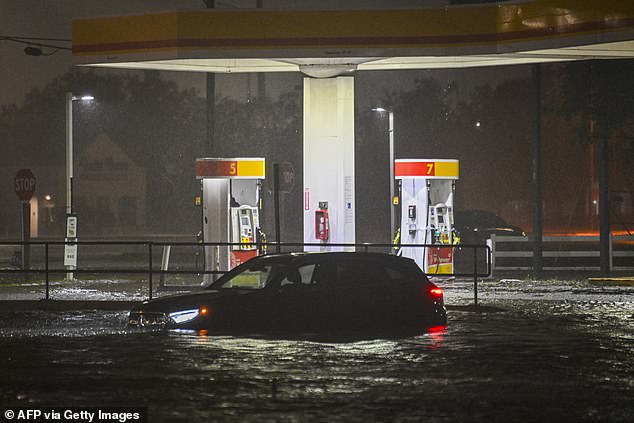
A vehicle is stranded on a street flooded with water after Hurricane Milton makes landfall in Brandon, Florida, on October 9, 2024. Milton made landfall in Florida on October 9, 2024
St. Petersburg residents were also unable to get water from their home taps because a break in a water pipe forced the city to shut down service.
The Pinellas County Sheriff’s Office later announced that all access points would be closed in and out of the county, including St. Petersburg, due to the conditions.
About 125 homes were destroyed before the hurricane made landfall, many of them mobile homes in senior living communities, said Kevin Guthrie, director of the Florida Division of Emergency Management.
Approximately 90 minutes after landfall, Milton was downgraded to a Category 2 storm.
As of early Thursday, the hurricane was a Category 1 storm with maximum sustained winds of about 85 mph as it moved out to sea and was about 35 miles east of Orlando.
Milton could cause losses of $60 billion for the global insurance industry, according to a report by analysts at RBC Capital.
This billion-dollar loss of payments would be similar to what occurred after Hurricane Ian, which hit Florida in 2022.
Ian had the second largest insured loss caused by a hurricane, according to a Swiss Re Institute insurance report, after Hurricane Katrina in 2005, whose devastation took the top spot.
Barclays analysts estimated this week that insured losses from the hurricane could exceed $50 billion.
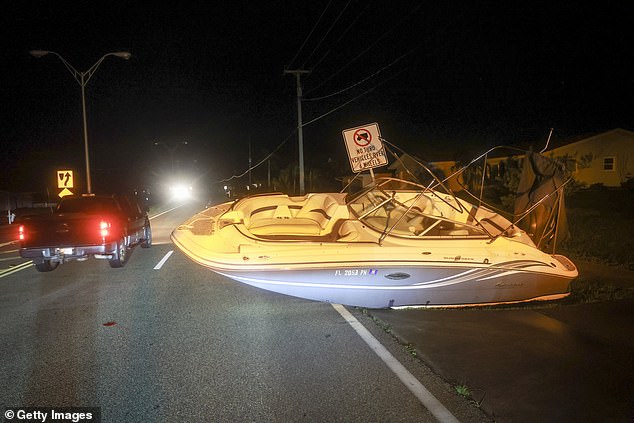
A boat lies stranded on a road after Hurricane Milton made landfall on October 10.
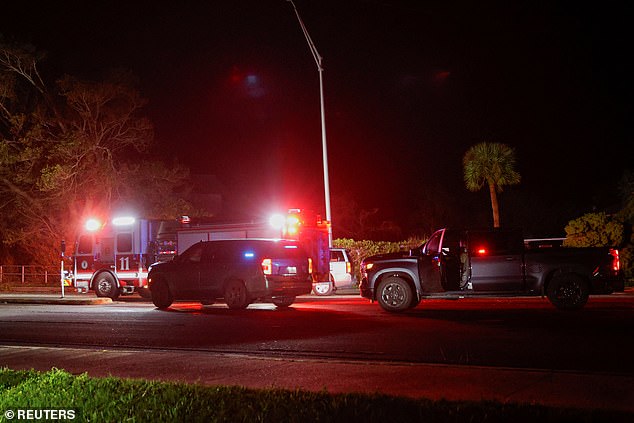
Emergency services go to the scene near Siesta Key, hard hit by storms
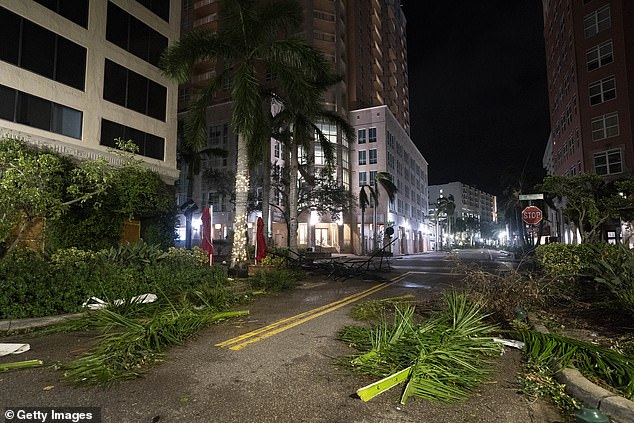
Storm debris left in Sarasota after Hurricane Milton, October 10
But these numbers will be felt more viscerally on the ground as entire communities navigate the destruction left by the flooding and deadly winds that devastated Milton properties.
Sarasota, Florida, Mayor Liz Alpert told reporters that her coastal city just south of Tampa Bay was as prepared as we can be yesterday.
“But this is going to be a really bad storm,” he told MSNBC.
“Emotionally, for people to have experienced that (Hurricane Helene) two weeks ago and now here we are again,” Alpert said, “it’s very hard on everyone.”
Florida residents seeking assistance are urged to call the State Assistance Information Line (SAIL) at 1-800-342-3557 and/or the FEMA Helpline at 1-800-621-3362.


